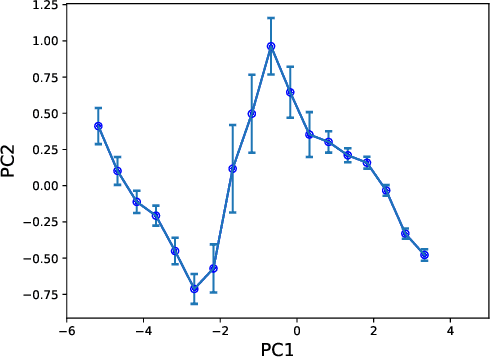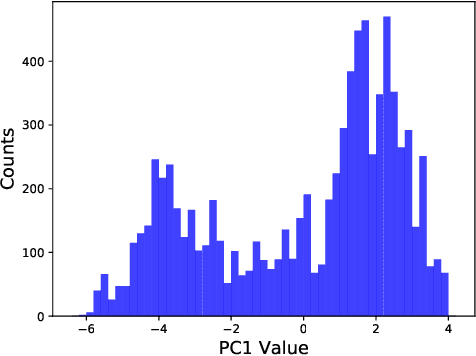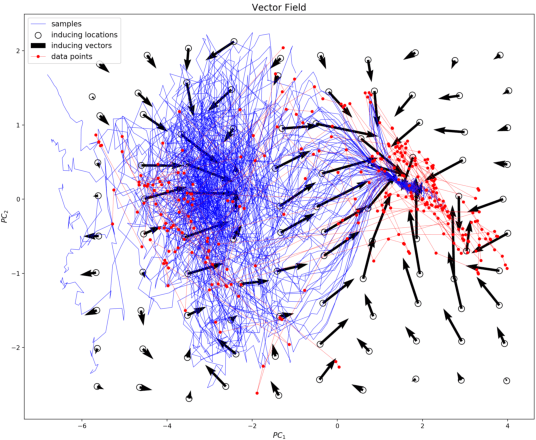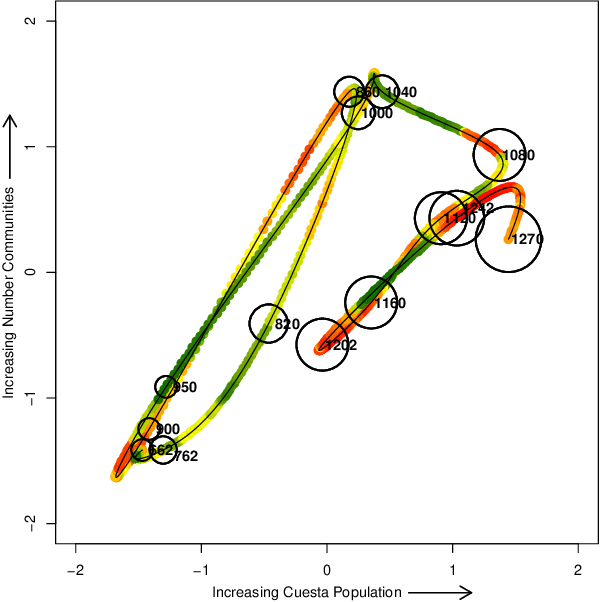Peter F. Stadler
SynRXN: An Open Benchmark and Curated Dataset for Computational Reaction Modeling
Jan 05, 2026Abstract:We present SynRXN, a unified benchmarking framework and open-data resource for computer-aided synthesis planning (CASP). SynRXN decomposes end-to-end synthesis planning into five task families, covering reaction rebalancing, atom-to-atom mapping, reaction classification, reaction property prediction, and synthesis route design. Curated, provenance-tracked reaction corpora are assembled from heterogeneous public sources into a harmonized representation and packaged as versioned datasets for each task family, with explicit source metadata, licence tags, and machine-readable manifests that record checksums, and row counts. For every task, SynRXN provides transparent splitting functions that generate leakage-aware train, validation, and test partitions, together with standardized evaluation workflows and metric suites tailored to classification, regression, and structured prediction settings. For sensitive benchmarking, we combine public training and validation data with held-out gold-standard test sets, and contamination-prone tasks such as reaction rebalancing and atom-to-atom mapping are distributed only as evaluation sets and are explicitly not intended for model training. Scripted build recipes enable bitwise-reproducible regeneration of all corpora across machines and over time, and the entire resource is released under permissive open licences to support reuse and extension. By removing dataset heterogeneity and packaging transparent, reusable evaluation scaffolding, SynRXN enables fair longitudinal comparison of CASP methods, supports rigorous ablations and stress tests along the full reaction-informatics pipeline, and lowers the barrier for practitioners who seek robust and comparable performance estimates for real-world synthesis planning workloads.
Democratising Artificial Intelligence for Pandemic Preparedness and Global Governance in Latin American and Caribbean Countries
Sep 21, 2024

Abstract:Infectious diseases, transmitted directly or indirectly, are among the leading causes of epidemics and pandemics. Consequently, several open challenges exist in predicting epidemic outbreaks, detecting variants, tracing contacts, discovering new drugs, and fighting misinformation. Artificial Intelligence (AI) can provide tools to deal with these scenarios, demonstrating promising results in the fight against the COVID-19 pandemic. AI is becoming increasingly integrated into various aspects of society. However, ensuring that AI benefits are distributed equitably and that they are used responsibly is crucial. Multiple countries are creating regulations to address these concerns, but the borderless nature of AI requires global cooperation to define regulatory and guideline consensus. Considering this, The Global South AI for Pandemic & Epidemic Preparedness & Response Network (AI4PEP) has developed an initiative comprising 16 projects across 16 countries in the Global South, seeking to strengthen equitable and responsive public health systems that leverage Southern-led responsible AI solutions to improve prevention, preparedness, and response to emerging and re-emerging infectious disease outbreaks. This opinion introduces our branches in Latin American and Caribbean (LAC) countries and discusses AI governance in LAC in the light of biotechnology. Our network in LAC has high potential to help fight infectious diseases, particularly in low- and middle-income countries, generating opportunities for the widespread use of AI techniques to improve the health and well-being of their communities.
Optimisation via encodings: a renormalisation group perspective
Mar 28, 2023Abstract:The traditional way of tackling discrete optimization problems is by using local search on suitably defined cost or fitness landscapes. Such approaches are however limited by the slowing down that occurs when local minima, that are a feature of the typically rugged landscapes encountered, arrest the progress of the search process. Another way of tackling optimization problems is by the use of heuristic approximations to estimate a global cost minimum. Here we present a combination of these two approaches by using cover-encoding maps which map processes from a larger search space to subsets of the original search space. The key idea is to construct cover-encoding maps with the help of suitable heuristics that single out near-optimal solutions and result in landscapes on the larger search space that no longer exhibit trapping local minima. The processes that are typically employed involve some form of coarse-graining, and we suggest here that they can be viewed as avatars of renormalisation group transformations.
The Past as a Stochastic Process
Dec 11, 2021



Abstract:Historical processes manifest remarkable diversity. Nevertheless, scholars have long attempted to identify patterns and categorize historical actors and influences with some success. A stochastic process framework provides a structured approach for the analysis of large historical datasets that allows for detection of sometimes surprising patterns, identification of relevant causal actors both endogenous and exogenous to the process, and comparison between different historical cases. The combination of data, analytical tools and the organizing theoretical framework of stochastic processes complements traditional narrative approaches in history and archaeology.
 Add to Chrome
Add to Chrome Add to Firefox
Add to Firefox Add to Edge
Add to Edge